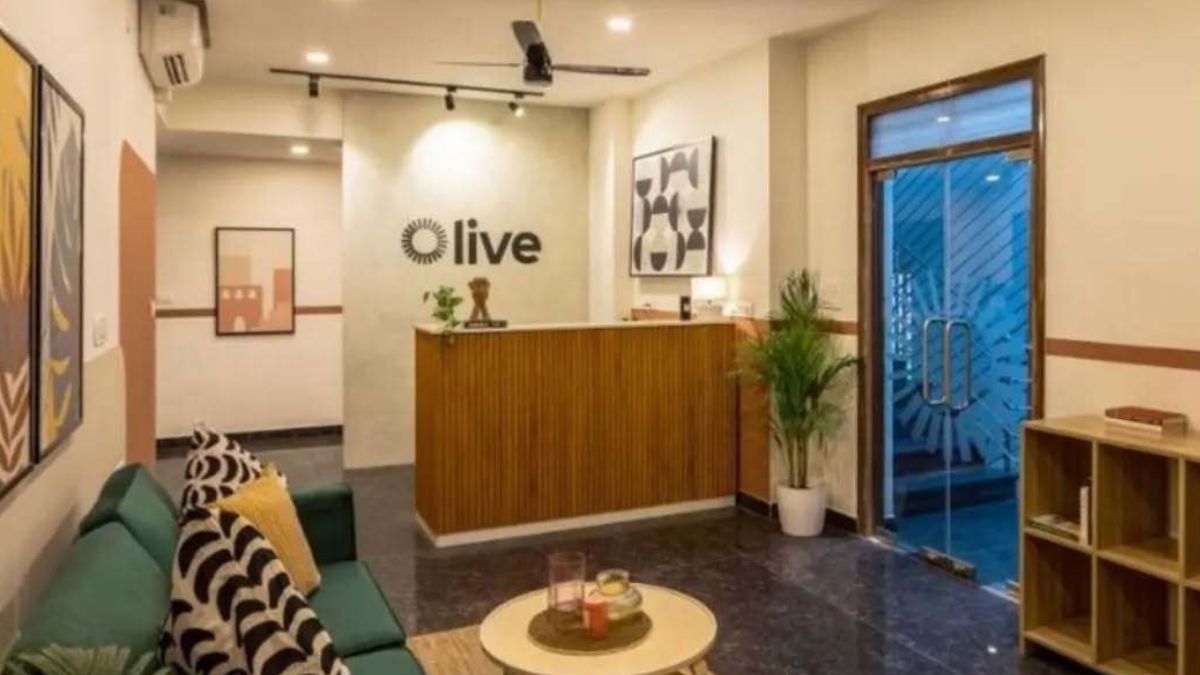Remote receptions? A look at the hospitality industry's latest offering for a post-digital age

Picture this: you arrive at a hotel reception and instead of being greeted by physical reception staff, you check in through a system by looking into a TV screen and talking to a receptionist who is hundreds of miles away, sitting at an operations centre.
The remote operator examines your credentials and checks you in remotely. The details are sent on your phone.
This reception is open round the clock, and can check in or check out a guest at any time of the day. If a guest has any issues, he/she need only put in a message (via the remote system) to the receptionist sitting miles away—the rest would then be taken care of by on-site house keeping and security staff at the hotel.
The aim of this system—designed by Olive, the hospitality arm of the Bengaluru-based Embassy Group—is to bring in more efficiency in front desk management. To that end, it launched Open Hotels, which have receptions that are remotely managed.
The company claims that remote management of receptions can save atleast 57 per cent of costs for the hotel operators.
Olive developed this remote hotel management system and has filed for a patent with the United States Patent and Trademark Office for this.
Another reason behind the development of such a system is that hiring people for the front desk, especially in budget hotels across the world, is becoming very difficult.
The company claims that there is a huge scope for such a system across hotels in the world, and added that such a system also had the potential to outsource hotel front desk operations to network centres in other countries.
Apart from Open Hotels, various other hotels belonging to Olive are expected to have this remotely operated system.
Kahraman Yigit, the CEO and Co-founder of Olive by Embassy, claims that they were the first ones in the country to run hotel receptions via video conferencing.
They hoteliers have already signed 12 hotels across Bangalore, Hyderabad, Mysore, Vijayawada and Chikmagalur, with plans to sign in 1000 hotels over the next five years.
The system replaces front desks with live video reception, handled centrally. Operational staff remain on-site.
This system uses fewer people and delivers more services, using Voice AI that monitors guests and their interactions at the reception—in real time—and is GDPR/DPDP-compliant.
If the system senses dissatisfaction, remote teams are alerted instantly, allowing them to intercept and keep guest safety a priority.
Audio-video analytics and predictive housekeeping round out a system that delivers more situational awareness with fewer people. Each remote desk has the capability to handle 25 receptions.
Yigit says that if autonomous systems such as Digi Yatra turn out to be successful for airport check-ins, then remote hotel systems definitely had the potential to become the norm in the near future.
Interestingly, as per market reports, 90 per cent of hotels in India were unbranded, due to which such a system has the potential to remotely manage things like a charm.
Tourism